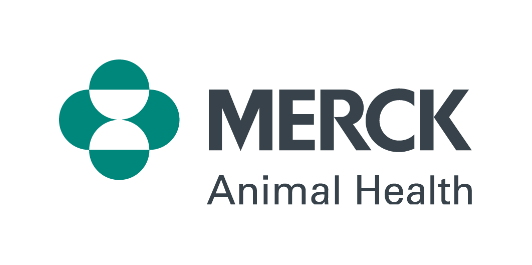Merck Animal Health Receives Positive CVMP Opinion for BOVILIS CRYPTIUM®
First cattle maternal vaccine effectively proven to protect against Cryptosporidium parvum in calves from birth onwards
RAHWAY, N.J.,– Oct. 5, 2023 – Merck Animal Health, known as MSD Animal Health outside of the United States and Canada, a division of Merck & Co., Inc., Rahway, N.J., USA (NYSE:MRK), today announced the European Medicines Agency’s Committee for Veterinary Medicinal Products (CVMP) issued a positive opinion for BOVILIS CRYPTIUM®, a vaccine to protect cattle against Cryptosporidium parvum (C. parvum) infection.
BOVILIS CRYPTIUM is indicated for the active immunization of pregnant cows to raise antibodies in colostrum against gp40 of C. parvum. BOVILIS CRYPTIUM is the first C. parvum maternal vaccine for cattle. C. parvum is a highly infectious zoonotic parasite that causes cryptosporidiosis, one of the most significant gastrointestinal diseases in cattle.
“C. parvum is a relentlessly challenging pathogen for cattle producers across Europe and worldwide. It is highly contagious and fast-spreading, and its contamination can be unavoidable in environments where cattle, goats and sheep live,” said Philippe Houffschmitt, DVM, MBA, associate vice president of the global ruminant business at Merck Animal Health. “We are pleased the CVMP recognizes the vaccine’s capability to help solve such a significant problem. We look forward to working with European regulators to potentially expand the preventive neonatal vaccine market with this new therapeutic category.”
Vaccinating pregnant heifers and cows can provide protection for calves at birth – when they are most vulnerable. The parasite plays a major role in the development of calf scour, the most common cause of death in young calves,i and can have longer term effects on weight gain and production efficiency in severe cases.ii
The efficacy of BOVILIS CRYPTIUM was previously established in various field studies which showed that the therapy elicits a strong immune response against C. parvum in newborn calves fed with colostrum from vaccinated pregnant heifers or cows, significantly reducing clinical signs (i.e. diarrhea) caused by C. parvum.
About Merck Health
At Merck, known as MSD outside of the United States and Canada, we are unified around our purpose: We use the power of leading-edge science to save and improve lives around the world. For more than a century, we’ve been at the forefront of research, bringing forward medicines, vaccines and innovative health solutions for the world’s most challenging diseases. Merck Animal Health, a division of Merck & Co., Inc., Rahway, N.J., USA, is the global animal health business of Merck. Through its commitment to The Science of Healthier Animals®, Merck Animal Health offers veterinarians, farmers, producers, pet owners and governments one of the widest ranges of veterinary pharmaceuticals, vaccines and health management solutions and services as well as an extensive suite of connected technology that includes identification, traceability and monitoring products. Merck Animal Health is dedicated to preserving and improving the health, well-being and performance of animals and the people who care for them. It invests extensively in dynamic and comprehensive R&D resources and a modern, global supply chain. Merck Animal Health is present in more than 50 countries, while its products are available in some 150 markets. For more information, visit www.merck-animal-health.com and connect with us on LinkedIn, Facebook, Twitter and Instagram.
Forward-Looking Statement of Merck & Co., Inc., Rahway, N.J., USA
This news release of Merck & Co., Inc., Rahway, N.J., USA (the “company”) includes “forward-looking statements” within the meaning of the safe harbor provisions of the U.S. Private Securities Litigation Reform Act of 1995. These statements are based upon the current beliefs and expectations of the company’s management and are subject to significant risks and uncertainties. If underlying assumptions prove inaccurate or risks or uncertainties materialize, actual results may differ materially from those set forth in the forward-looking statements.
Risks and uncertainties include but are not limited to, general industry conditions and competition; general economic factors, including interest rate and currency exchange rate fluctuations; the impact of the global outbreak of novel coronavirus disease (COVID-19); the impact of pharmaceutical industry regulation and health care legislation in the United States and internationally; global trends toward health care cost containment; technological advances, new products and patents attained by competitors; challenges inherent in new product development, including obtaining regulatory approval; the company’s ability to accurately predict future market conditions; manufacturing difficulties or delays; financial instability of international economies and sovereign risk; dependence on the effectiveness of the company’s patents and other protections for innovative products; and the exposure to litigation, including patent litigation, and/or regulatory actions.
The company undertakes no obligation to publicly update any forward-looking statement, whether as a result of new information, future events or otherwise. Additional factors that could cause results to differ materially from those described in the forward-looking statements can be found in the company’s Annual Report on Form 10-K for the year ended December 31, 2022 and the company’s other filings with the Securities and Exchange Commission (SEC) available at the SEC’s Internet site (www.sec.gov).
[1] Cho Y, Yoon, K. An overview of calf diarrhea – infectious etiology, diagnosis, and intervention. J Vet Sci. 2014 Mar;15(1):1-17.
[2] Shaw HJ, Innes EA, Morrison LJ, et al. Long-term production effects of clinical cryptosporidiosis in neonatal calves. Int J Parasitol. 2020 May;50(5):371-376.
